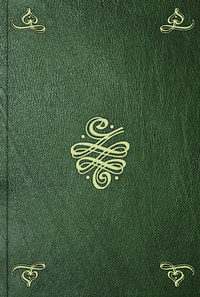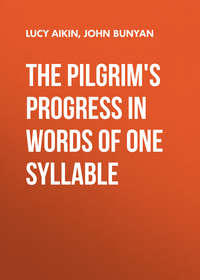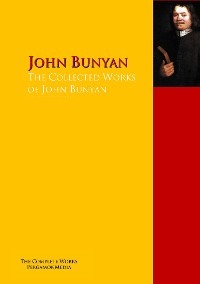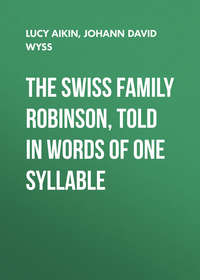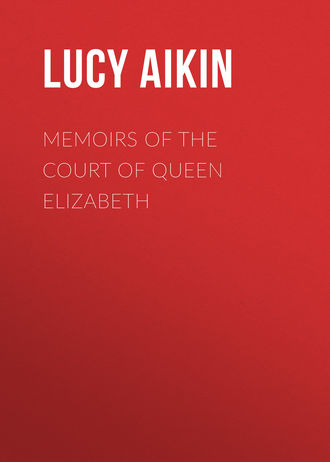 полная версия
полная версияMemoirs of the Court of Queen Elizabeth
Thomas Cavendish, elated by the splendid success of that first expedition in which, with three slender barks of insignificant size carrying only one hundred and twenty-three persons of every degree, he had plundered the whole coast of New Spain and Peru, burned Paita and Acapulco, and captured a Spanish admiral of seven hundred tons, besides many other vessels taken or burned;—then crossed the great South Sea, and circumnavigated the globe in the shortest time in which that exploit had yet been performed;—set sail again in August 1591 on a second voyage. But this time, when his far greater force and more adequate preparations of every kind seemed to promise results still more profitable and glorious, scarce any thing but disasters awaited him. He took indeed the town of Santos in Brazil, which was an acquisition of some importance; but delaying here too long, he arrived at a wrong season in the Straits of Magellan, and was compelled to endure the winter of that inhospitable clime; where seeing his numbers thinned by sickness and hardship, and his plans baffled by dissentions and insubordination, he found it necessary to abandon his original design of crossing the South Sea, and resolved to undertake the voyage to China by the Cape of Good Hope. First, however, he was fatally prevailed upon to return to the coast of Brazil, where he lost many men in rash attempts against various towns, which expecting his attacks were now armed for their defence, and a still greater number by desertion. Baffled in all his designs, worn out with fatigue, anxieties, and chagrin, this brave but unfortunate adventurer breathed his last far from England on the wide ocean, and so obscurely that even the date of his death is unknown.
At this period, a peculiar education was regarded as not more necessary to enable a gentleman to assume the direction of a naval expedition than the command of a troop of horse; and it is probable that even by Cavendish, whose exploits we read with amazement, but a very slender stock of maritime experience was possessed when he first embarked on board the vessel in which he had undertaken to circumnavigate the globe. He was the third son of a Suffolk gentleman of large estate; came early to court; and having there consumed his patrimony in the fashionable magnificence of the time, suddenly discovered within himself sufficient courage to attempt the reparation of his broken fortunes by that favorite resource, the plunder of the Spanish settlements. On his return from his first voyage he sailed up the Thames in a kind of triumph, displaying a top-sail of cloth of gold, and making ostentation of the profit rather than the glory of the enterprise. He appears to have been equally deficient in the enlightened prudence which makes an essential feature of the great commander, and in that lofty disinterestedness of motive which constitutes the hero; but in the activity, the enterprise, the brilliant valor, which now form the spirit of the English navy, he had few equals and especially few predecessors; and amongst the founders of its glory the name of Cavendish is therefore worthy of a conspicuous and enduring place.
By the failure of the late attempt to seat don Antonio on the throne of Portugal, the sovereignty of Philip II. over that country and its dependencies had finally been established; and in consequence its trade and settlements in the East offered a fair and tempting prize to the ambition or cupidity of English adventurers.
The passage by the Cape of Good Hope, repeatedly accomplished by circumnavigators of this nation, had now ceased to oppose any formidable obstacle to the spirit of maritime enterprise; and the papal donation was a bulwark still less capable of preserving inviolate to the sovereigns of Portugal their own rich Indies. The first expedition ever fitted out from England for those eastern regions, where it now possesses an extent of territory in comparison of which itself is but a petty province, consisted of three "tall ships," which sailed in this year under the conduct of George Raymond and James Lancaster. After doubling the Cape and refreshing themselves in Saldanha Bay, which the Portuguese had named but not yet settled, the navigators steered along the eastern coast of Africa, where the ship commanded by Raymond was lost. With the other two, however, they proceeded still eastward; passed without impediment all the stations of the Portuguese on the shores of the Indian ocean, doubled Cape Comorin, and extended their voyage to the Nicobar isles, and even to the peninsula of Malacca. They landed in several parts, where they found means to open an advantageous traffic with the natives; and, after capturing many Portuguese vessels laden with various kinds of merchandise, repassed the Cape in perfect safety with all their booty. In their way home they visited the West Indies, where great disasters overtook them; for here their two remaining ships were lost, and Lancaster, with the slender remnant of their crews, was glad to obtain a passage to Europe on board a French ship which happily arrived to their relief. But as far as respected the eastern part of the expedition, their success had been such as strongly to invite the attempts of future adventurers; and nine years after its sailing, her majesty was prevailed upon to grant a charter of incorporation with ample privileges to an East India company, under whose auspices Lancaster consented to undertake a second voyage. Annual fleets were from this period fitted out by these enterprising traders, and factories of their establishment soon arose in Surat, in Masulipatam, in Bantam, in Siam, and even in Japan. The history of their progress makes no part of the subject of the present work; but the foundation of a mercantile company which has advanced itself to power and importance absolutely unparalleled in the annals of the world, forms a feature not to be overlooked in the glory of Elizabeth.
These long and hazardous voyages of discovery, of hostility, or of commerce, began henceforth to afford one of the most honorable occupations to those among the youthful nobility or gentry of the country, whose active spirits disdained the luxurious and servile idleness of the court: they also opened a welcome resource to younger sons, and younger brothers, impatient to emancipate themselves from the galling miseries of that necessitous dependence on the head of their house to which the customs of the age and country relentlessly condemned them.
Thus Shakespeare in his Two Gentlemen of Verona,
…"He wondered that your lordshipWould suffer him to spend his youth at home,While other men of slender reputationPut forth their sons to seek preferment out:Some to the wars to try their fortune there;Some to discover islands far away;Some to the studious universities.For any or for all these exercises,He said, that Protheus your son was meet:And did request me to importune youTo let him spend his time no more at home;Which would be great impeachment to his age,In having known no travel in his youth."But the advancement of the fortunes of individuals was by no means the principal or most permanent good which accrued to the nation by these enterprises. The period was still indeed far distant, in which voyages of discovery were to be undertaken on scientific principles and with large views of general utility; but new animals, new vegetables, natural productions or manufactured articles before unknown to them, attracted the attention even of these first unskilful explorers. Specimens in every kind were brought home, and, recommended as they never failed to be by fabulous or grossly exaggerated descriptions, in the first instance only served to gratify and inflame the vulgar passion for wonders. But the attention excited to these striking novelties gradually became enlightened; a more familiar acquaintance disclosed their genuine properties, and the purposes to which they might be applied at home;—Raleigh introduced the potatoe on his Irish estates;—an acceptable however inelegant luxury was discovered in the use of tobacco; and somewhat later, the introduction of tea gradually brought sobriety and refinement into the system of modern English manners.
Many allusions to the prevailing passion for beholding foreign, or, as they were then accounted, monstrous animals, may be found scattered over the works of Shakespeare and contemporary dramatists. Trinculo says, speaking of Caliban, "Were I but in England now… and had but this fish painted, not a holiday fool there but would give a piece of silver. There would this monster make a man; any strange beast there makes a man: when they will not give a doit to relieve a lame beggar, they will lay out ten to see a dead Indian." And again; "Do you put tricks upon's with savages and men of Inde?" &c. The whole play of the Tempest, exquisite as it is, must have derived a still more poignant relish, to the taste of that age, from the romantic ideas of desert islands then floating in the imaginations of men.
In the following year, 1592, Raleigh, weary of his Irish exile, and anxious by some splendid exploit to revive the declining favor of the queen, projected a formidable attack on the Spanish power in America, and engaged without difficulty in the enterprise a large number of volunteers. But unavoidable obstacles arose, by which the fleet was detained till the proper season for its sailing was past: Elizabeth recalled Raleigh to court; and the only fortunate result of the expedition, to the command of which Martin Frobisher succeeded, was the capture of one wealthy carrack and the destruction of another.
Raleigh, in the meantime, was amusing his involuntary idleness by an intrigue with one of her majesty's maids of honor, a daughter of the celebrated sir Nicholas Throgmorton. The queen, in the heat of her indignation at the scandal brought upon her court by the consequences of this amour, resorted, as in a thousand other cases, to a vigor beyond the laws; and though sir Walter offered immediately to make the lady the best reparation in his power, by marrying her, which he afterwards performed, Elizabeth unfeelingly published her shame to the whole world by sending both culprits to the Tower.
Sir Walter remained a prisoner during several months. Meanwhile his ships returned from their cruise, and the profits from the sale of the captured carrack were to be divided among the queen, the admiral, the sailors, and the several contributors to the outfit. Disputes arose; her majesty was dissatisfied with the share allotted her; and taking advantage of the situation into which her own despotic violence had thrown Raleigh, she appears to have compelled him to buy his liberty, and the undisturbed enjoyment of all that he held under her, by the sacrifice of no less than eighty thousand pounds due to him as admiral. Such was the disinterested purity of that zeal for morals of which Elizabeth judged it incumbent on her to make profession!
It may be curious to learn, from another incident which occurred about the same time, at what rate her majesty caused her forgiveness of lawful matrimony to be purchased.
Robert Cary, third son of lord Hunsdon, created lord Leppington by James I. and earl of Monmouth by his successor,—from whose memoirs of himself the following particulars are derived,—was at this time a young man and an assiduous attendant on the court of his illustrious kinswoman. Being a younger son, he had no patrimony either in possession or reversion; he received from the exchequer only one hundred pounds per annum during pleasure, and by the style of life which he found it necessary to support, had incurred a debt of a thousand pounds. In this situation he married a widow possessed of five hundred pounds per annum and some ready money. His father evinced no displeasure on the occasion; but his other friends, and especially the queen, were so much offended at the match, that he took his wife to Carlisle and remained there without approaching the court till the next year. Being then obliged to visit London on business, his father suggested the expediency of his paying the queen the compliment of appearing on her day. Accordingly, he secretly prepared caparisons and a present for her majesty, at the cost of more than four hundred pounds, and presented himself in the tilt-yard in the character of "a forsaken knight who had vowed solitariness." The festival over, he made himself known to his friends in court; but the queen, though she had received his gift, would not take notice of his presence.
It happened soon after, that the king of Scots sent to Cary's elder brother, then marshal of Berwick, to beg that he would wait upon him to receive a secret message which he wanted to transmit to the queen. The marshal wrote to his father to inquire her majesty's pleasure in the matter. She did not choose that he should stir out of Berwick; but "knowing, though she would not know it," that Robert Cary was in court, she said at length to lord Hunsdon, "I hear your fine son that has married lately so worthily is hereabouts; send him if you will to know the king's pleasure." His lordship answered, that he knew he would be happy to obey her commands. "No," said she, "do you bid him go, for I have nothing to do with him." Robert Cary thought it hard to be sent off without first seeing the queen; "Sir," said he to his father, who urged his going, "if she be on such hard terms with me, I had need be wary what I do. If I go to the king without her license, it were in her power to hang me at my return, and that, for any thing I see, it were ill trusting her." Lord Hunsdon "merrily" told the queen what he said. "If the gentleman be so distrustful," she answered, "let the secretary make a safe-conduct to go and come, and I will sign it." On his return with letters from James, Robert Cary hastened to court, and entered the presence-chamber splashed and dirty as he was; but not finding the queen there, lord Hunsdon went to her to announce his son's arrival. She desired him to receive the letter, or message, and bring it to her. But the young gentleman knew the court and the queen too well to consent to give up his dispatches even to his father; he insisted on delivering them himself, and at length, with much difficulty gained admission.
The first encounter was, as he expresses it, "stormy and terrible," which he passed over with silence; but when the queen had "said her pleasure" of himself and his wife, he made her a courtly excuse; with which she was so well appeased, that she at length assured him all was forgiven and forgotten, and received him into her wonted favor. After this happy conclusion of an adventure so perilous to a courtier of Elizabeth, Cary returned to Carlisle; and his father's death soon occurring, he had orders to take upon himself the government of Berwick till further orders. In this situation he remained a year without salary; impairing much his small estate, and unable to obtain from court either an allowance, or leave of absence to enable him to solicit one in person. At length, necessity rendering him bold, he resolved to hazard the step of going up without permission. On his arrival, however, neither secretary Cecil nor even his own brother would venture to introduce him to the queen's presence, but advised him to hasten back before his absence should be known, for fear of her anger. At last, as he stood sorrowfully pondering on his case, a gentleman of the chamber, touched with pity, undertook to mention his arrival to her majesty in a way which should not displease her: and he opened the case by telling her, that she was more beholden to the love and service of one man than of many whom she favored more. This excited her curiosity; and on her asking who this person might be, he answered that it was Robert Cary, who, unable longer to bear his absence from her sight, had posted up to kiss her hand and instantly return. She sent for him directly, received him with greater favor than ever, allowed him after the interview to lead her out by the hand, which seemed to his brother and the secretary nothing less than a miracle; and what was more, granted him five hundred pounds immediately, a patent of the wardenry of the east marches, and a renewal of his grant of Norham-castle. It was this able courtier, rather than grateful kinsman, who earned the good graces of king James by being the first to bring him the welcome tidings of the decease of Elizabeth.
Incidental mention has already been made of sir William Holles of Haughton in Nottinghamshire, the gentleman who refused to marry his daughter to the earl of Cumberland, because he did not choose "to stand cap in hand" to his son-in-law: this worthy knight died at a great age in the year 1590; and a few further particulars respecting him and his descendants may deserve record, on account of the strong light which they reflect on several points of manners. Sir William was distinguished, perhaps beyond any other person of the same rank in the kingdom, for boundless hospitality and a magnificent style of living. "He began his Christmas," says the historian of the family, "at Allhallowtide and continued it until Candlemas; during which any man was permitted to stay three days, without being asked whence he came or what he was." For each of the twelve days of Christmas he allowed a fat ox and other provisions in proportion. He would never dine till after one o'clock; and being asked why he preferred so unusually late an hour, he answered, that "for aught he knew there might a friend come twenty miles to dine with him, and he would be loth he should lose his labor."
At the coronation of Edward VI. he appeared with fifty followers in blue coats and badges,—then the ordinary costume of retainers and serving-men,—and he never went to the sessions at Retford, though only four miles from his own mansion, without thirty "proper fellows" at his heels. What was then rare among the greatest subjects, he kept a company of actors of his own to perform plays and masques at festival times; in summer they travelled about the country.
This sir William was succeeded in his estates by sir John Holles his grandson, who was one of the band of gentlemen pensioners to Elizabeth, and in the reign of James I. purchased the title of earl of Clare. His grandfather had engaged his hand to a kinswoman of the earl of Shrewsbury; but the young man declining to complete this contract, and taking to wife a daughter of sir Thomas Stanhope, the consequence was a long and inveterate feud between the houses of Holles and of Talbot, which was productive of several remarkable incidents. Its first effect was a duel between Orme, a servant of Holles, and Pudsey, master of horse to the earl of Shrewsbury, in which the latter was slain. The earl prosecuted Orme, and sought to take away his life; but sir John Holles in the first instance caused him to be conveyed away to Ireland, and afterwards obtained his pardon of the queen. For his conduct in this business he was himself challenged by Gervase Markham, champion and gallant to the countess of Shrewsbury; but he refused the duel, because the unreasonable demand of Markham, that it should take place in a park belonging to the earl his enemy, gave him just ground to apprehend that some treachery was meditated. Anxious however to wipe away the aspersions which his adversary had taken occasion to cast upon his courage, he sought a rencounter which might wear the appearance of accident; and soon after, having met Markham on the road, they immediately dismounted and attacked each other with their rapiers; Markham fell, severely wounded, and the earl of Shrewsbury lost no time in raising his servants and tenantry to the number of one hundred and twenty in order to apprehend Holles in case Markham's hurt should prove mortal. On the other side lord Sheffield, the kinsman of Holles, joined him with sixty men. "I hear, cousin," said he on his arrival, "that my lord of Shrewsbury is prepared to trouble you; but take my word, before he carry you it shall cost many a broken pate;" and he and his company remained at Haughton till the wounded man was out of danger. Markham had vowed never to eat supper or take the sacrament till he was revenged, and in consequence found himself obliged to abstain from both to the day of his death111. What appears the most extraordinary part of the story is, that we do not find the queen and council interfering to put a stop to this private war, worthy of the barbarism of the feudal ages. Gervase Markham, who was the portionless younger son of a Nottinghamshire gentleman of ancient family, became the most voluminous miscellaneous writer of his age, using his pen apparently as his chief means of subsistence. He wrote on a vast variety of subjects, and both in verse and prose; but his works on farriery and husbandry appear to have been the most useful, and those on field sports the most entertaining, of his performances.
The progress of the drama is a subject which claims in this place some share of our attention, partly because it excited in a variety of ways that of Elizabeth herself. By the appearance of Ferrex and Porrex in 1561, and that of Gammer Gurton's Needle five years later, a new impulse had been given to English genius; and both tragedies and comedies approaching the regular models, besides historical and pastoral dramas, allegorical pieces resembling the old moralities, and translations from the ancients, were from this time produced in abundance, and received by all classes with avidity and delight.
About twenty dramatic poets flourished between 1561 and 1590; and an inspection of the titles alone of their numerous productions would furnish evidence of an acquaintance with the stores of history, mythology, classical fiction, and romance, strikingly illustrative of the literary diligence and intellectual activity of the age.
Richard Edwards produced a tragi-comedy on the affecting ancient story of Damon and Pithias, besides his comedy of Palamon and Arcite, formerly noticed as having been performed for the entertainment of her majesty at Oxford. In connexion with this latter piece it may be remarked, that of the chivalrous idea of Theseus in this celebrated tale and in the Midsummer Night's Dream, as well as of all the other gothicized representations of ancient heroes, of which Shakespeare's Troilus and Cressida, his Rape of Lucrece, and some passages of Spenser's Faery Queen, afford further examples, Guido Colonna's Historia Trojana, written in 1260, was the original: a work long and widely popular, which had been translated, paraphrased and imitated in French and English, and which the barbarism of its incongruities, however palpable, had not as yet consigned to oblivion or contempt.
George Gascoigne, besides his tragedy from Euripides, translated also a comedy from Ariosto, performed by the students of Gray's Inn under the title of The Supposes; which was the first specimen in our language of a drama in prose. Italian literature was at this period cultivated amongst us with an assiduity unequalled either before or since, and it possessed few authors of merit or celebrity whose works were not speedily familiarized to the English public through the medium of translations. The study of this enchanting language found however a vehement opponent in Roger Ascham, who exclaims against the "enchantments of Circe, brought out of Italy to mar men's manners in England; much by examples of ill life, but more by precepts of fond books, of late translated out of Italian into English, and sold in every shop in London." He afterwards declares that "there be more of these ungracious books set out in print within these few months than have been seen in England many years before." To these strictures on the moral tendencies of the popular writers of Italy some force must be allowed; but it is obvious to remark, that similar objections might be urged with at least equal cogency against the favorite classics of Ascham; and that the use of so valuable an instrument of intellectual advancement as the free introduction of the literature of a highly polished nation into one comparatively rude, is not to be denied to beings capable of moral discrimination, from the apprehension of such partial and incidental injury as may arise out of its abuse. Italy, in fact, was at once the plenteous store-house whence the English poets, dramatists and romance writers of the latter half of the sixteenth century drew their most precious materials; the school where they acquired taste and skill to adapt them to their various purposes; and the Parnassian mount on which they caught the purest inspirations of the muse.
Elizabeth was a zealous patroness of these studies; she spoke the Italian language with fluency and elegance, and used it frequently in her mottos and devices: by her encouragement, as we shall see, Harrington was urged to complete his version of the Orlando Furioso, and she willingly accepted in the year 1600 the dedication of Fairfax's admirable translation of the great epic of Tasso.


